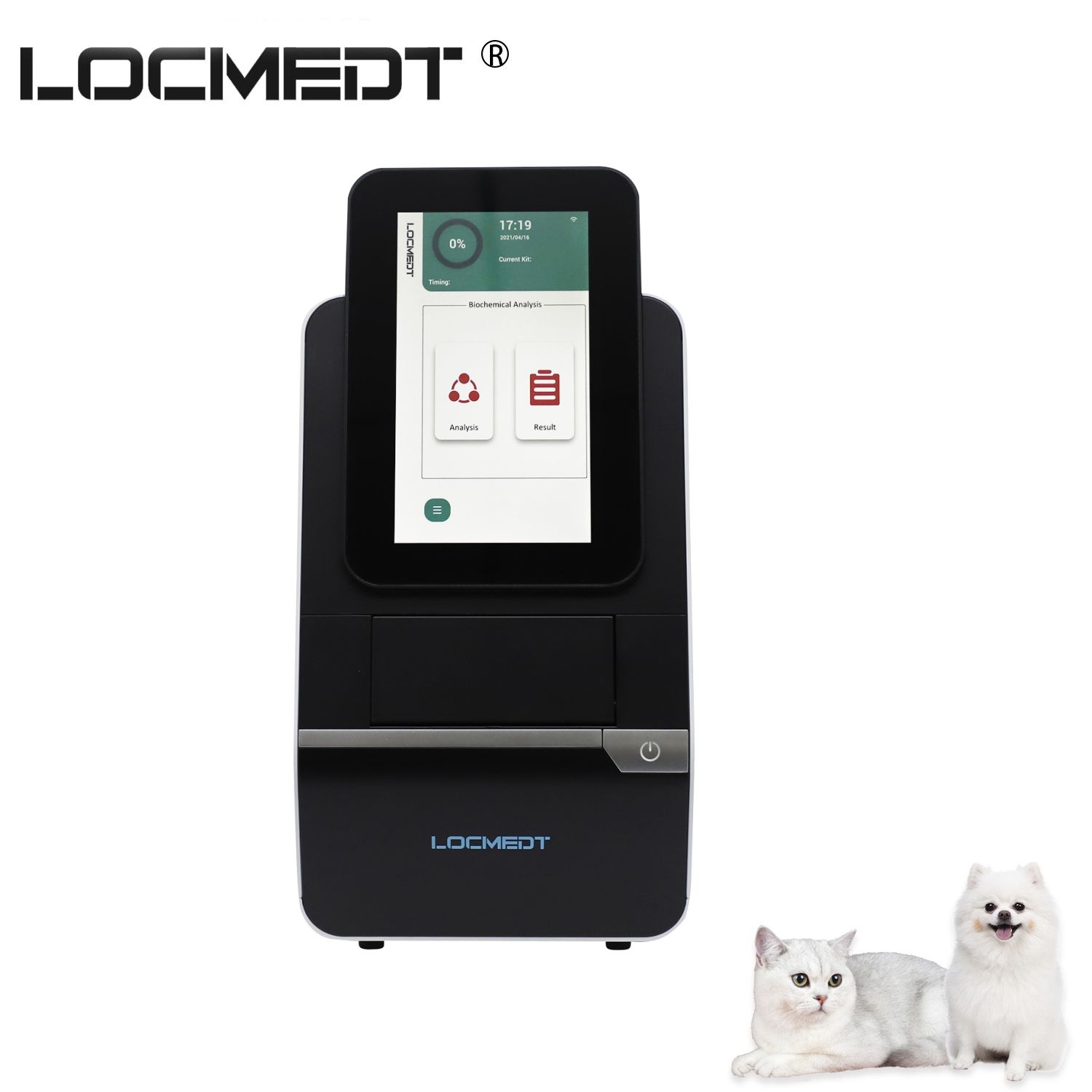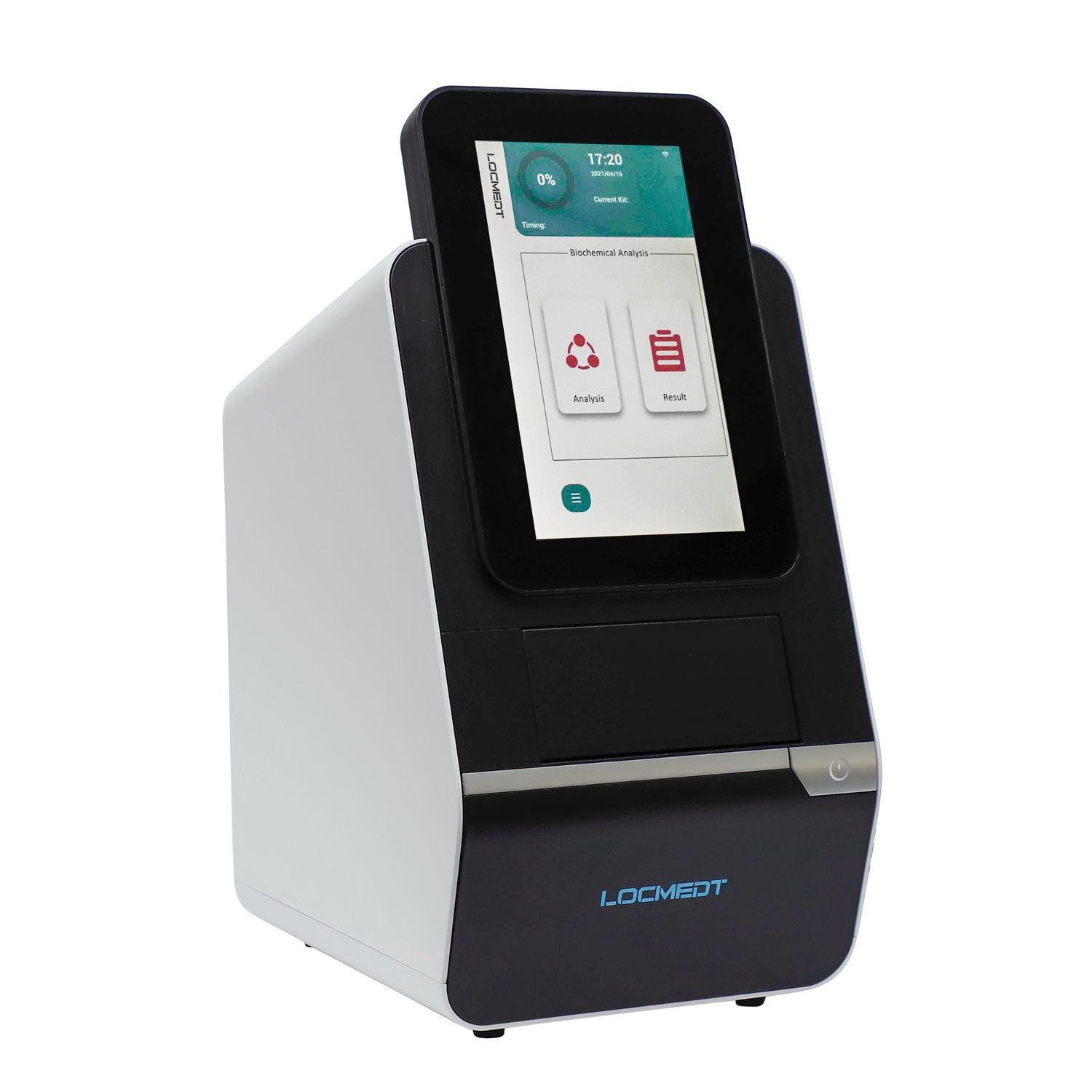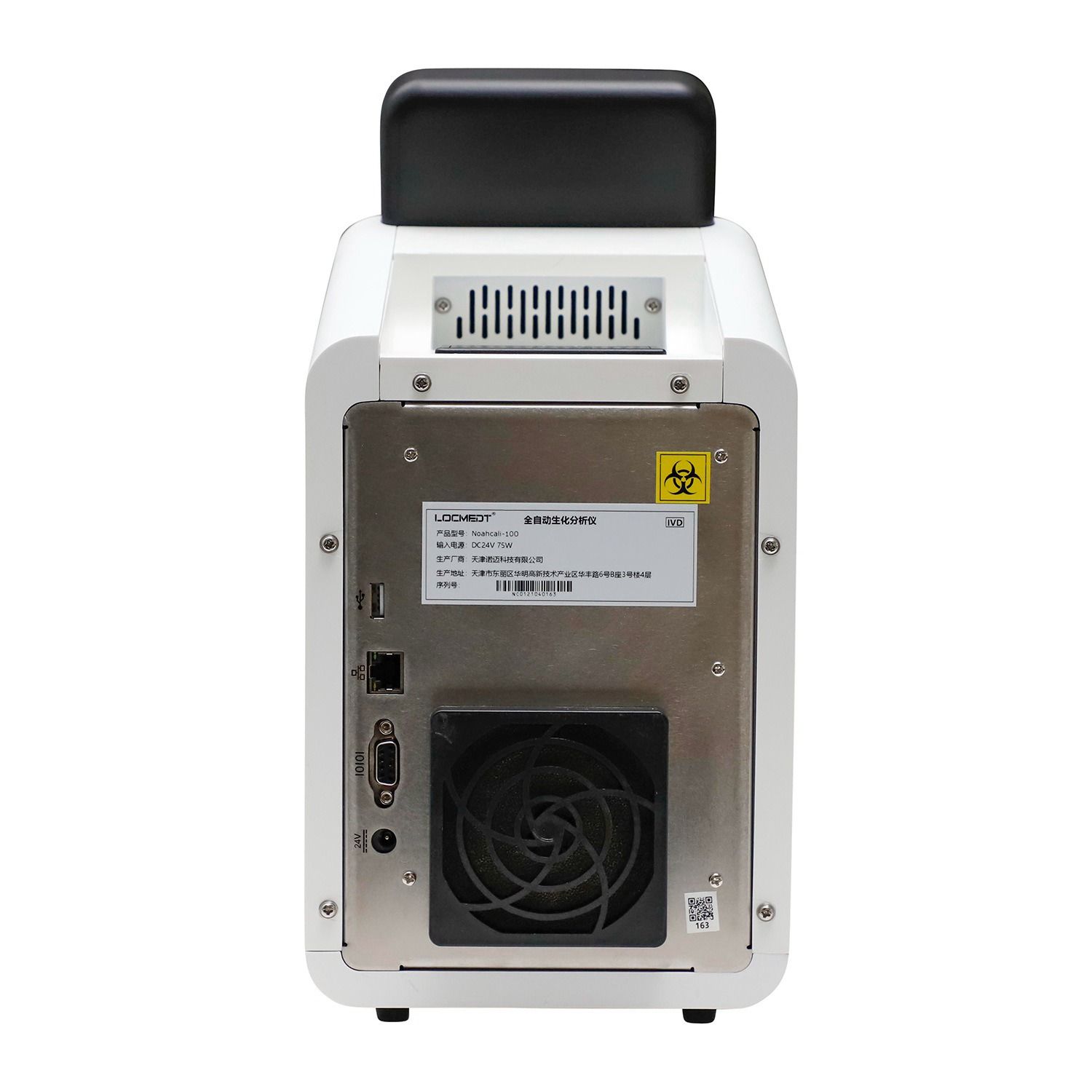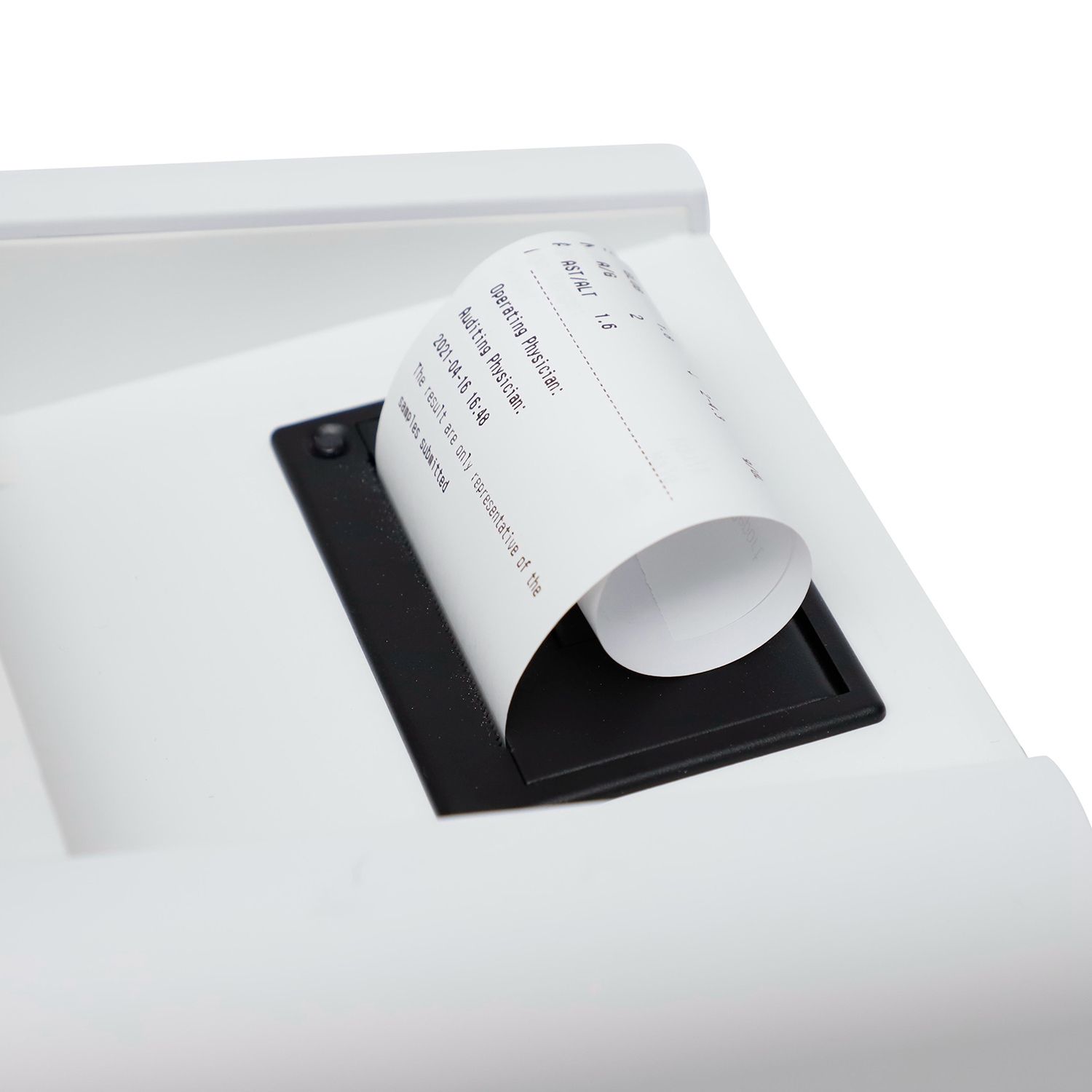Noahcali-100 Portable Analizador Hematologico Veterinario
Easy operation, automatic design, pre-installed diluent and lyophilized reagent beads, no need centrifuge, only three simple steps for fast accurate results in 12 minutes. Based on micro-fluidic technology, Noahcali-100 Portable Vet Blood Chemistry Analyzer and associated reagent panels are designed to simplify the user' work, improve the working efficiency.
Get up to 22 results in a single run of whole blood, eight different reagent panels covers biochemistry, blood gas, electrolytes test.
Features of Noahcali-100 Portable Vet Blood Chemistry Analyzer
Shorter Testing Time
Easy operation, get results in 8-12 minutes
Reliable & Accurate Results
Built-in Real time IQC system, monitoring the whole testing process
Lower Sample Volume
Only 100 μl (3 drops)of whole blood, serum or plasma
Broad Test Menu
8 different reagent panels covering biochemistry, blood gas, electrolyte analysis items.
Factory-calibrated
Reagent calibration is completed before delivery.
Built-in Diluent
Diluent pre-installed in Reagent Panel, only need to add sample
Basic Information of Noahcali-100 Portable Vet Blood Chemistry Analyzer
System Type | Bench top clinical chemistry analyzer |
Sample Type | Lithium Heparin Anticoagulant whole blood, serum and plasma |
Sample Volume | 90-120 μl |
Bar code identification | Automatic bar code scan for reagents |
Testing Time | 8-12 minutes/sample |
Testing Principle | Absorption spectroscopy, transmission turdimetry |
Absorption spectroscopy | End point, rate, fixed time |
Temperature | 37±0.2ºC |
Absorbance | 0-3.5Abs |
QC & Calibrate | Automatic and real-time |
Work Environment | Temperature:10-32ºC Humidity: 30%-80% |
Light Source | xenon lamps with working time of decades. |
Other knowledge points you need to know:
A. Understanding Dog Blood Tests
Blood or lab tests allow us to obtain information about your dog's health that can only be found from collecting a sample of blood and having it analyzed. This includes a CBC (complete blood count) and blood chemistries, which analyze chemical components in the blood.
A CBC for dogs identifies and quantifies white blood cells, red blood cells, and platelets in a given amount of blood. This includes analyzing the shape and condition of the cells for health and functionality. This provides information about your dog's immune system (white blood cells) and oxygen carrying capacity (red blood cell count).
B. 6 Easy Steps to ABG Interpretation
A proper arterial blood gas (ABG) analysis provides very important information regarding the acid/base balance of our bodies. It is important to understand that the pH in our bodies likes to stay within the very narrow range of 7.35 - 7.45. In the physiologically functioning body, this is achieved by the respiratory system maintaining a carbon dioxide (CO2) level between 35 - 45 mmHg and the metabolic system maintaining a bicarbonate level between 22 - 26 mEq/L.
When a pathophysiological process causes the CO2 or bicarbonate levels in our body to move outside of their normal ranges, the pH is affected and also moves outside of its normal range. The body is not happy with this and wants to return it's pH back to a normal range. The best way to do this is just to fix which component (CO2 or bicarbonate) of the system that has ventured outside the normal range. However, a pathophysiological process may not be able to be fixed instantaneously.
As a result, the next best method to get the pH back into the normal range is to have the component of the other system to have the opposite effect on the body in order to counteract the problem and return the body's pH back to normal. This is known as compensation. As bicarbonate is a base/alkalotic component, the more bicarbonate in the body leads to a more alkalotic pH. As carbon dioxide breaks down into hydrogen ions that is an acidotic component, the more carbon dioxide in the body leads to a more acidotic pH. The opposite is also true in that the less bicarbonate in the body leads to a more acidotic pH, while the less carbon dioxide in the body leads to a more alkalotic pH. Remember, the aim of the compensating system is to do the opposite thing to what the problematic system is doing.
C. Auto Pet Blood Test Analyzer: 4 Ways to Prepare Your Pet For Routine Blood Test
Blood can be a rich river of information for both humans and pets.
Blood tests can help us understand aspects of our overall health that may not be obvious on a physical exam. It can help us reveal, catch, and treat health problems early to deal with them proactively and have a better quality of life. The same is true for our pets.
Contrary to popular belief, routine blood tests are just as essential for healthy pets as they are for sick pets. Getting your pet's blood work done while they are still young and healthy gives your veterinarian a reliable baseline to compare results with when they get older or get sick.
When done routinely, blood tests can help veterinarians detect potential diseases before they become more severe. Most pet diseases are manageable with treatments such as medication and dietary modifications if caught early.
Preparing your pet for their blood test appointment can help make sure you get proper advice or diagnosis from your veterinarian. You can also save time and money by preventing inaccurate readings and eliminating the need to repeat the test. Here are four ways you can come in prepared for your pet’s blood test appointment.






评论
发表评论